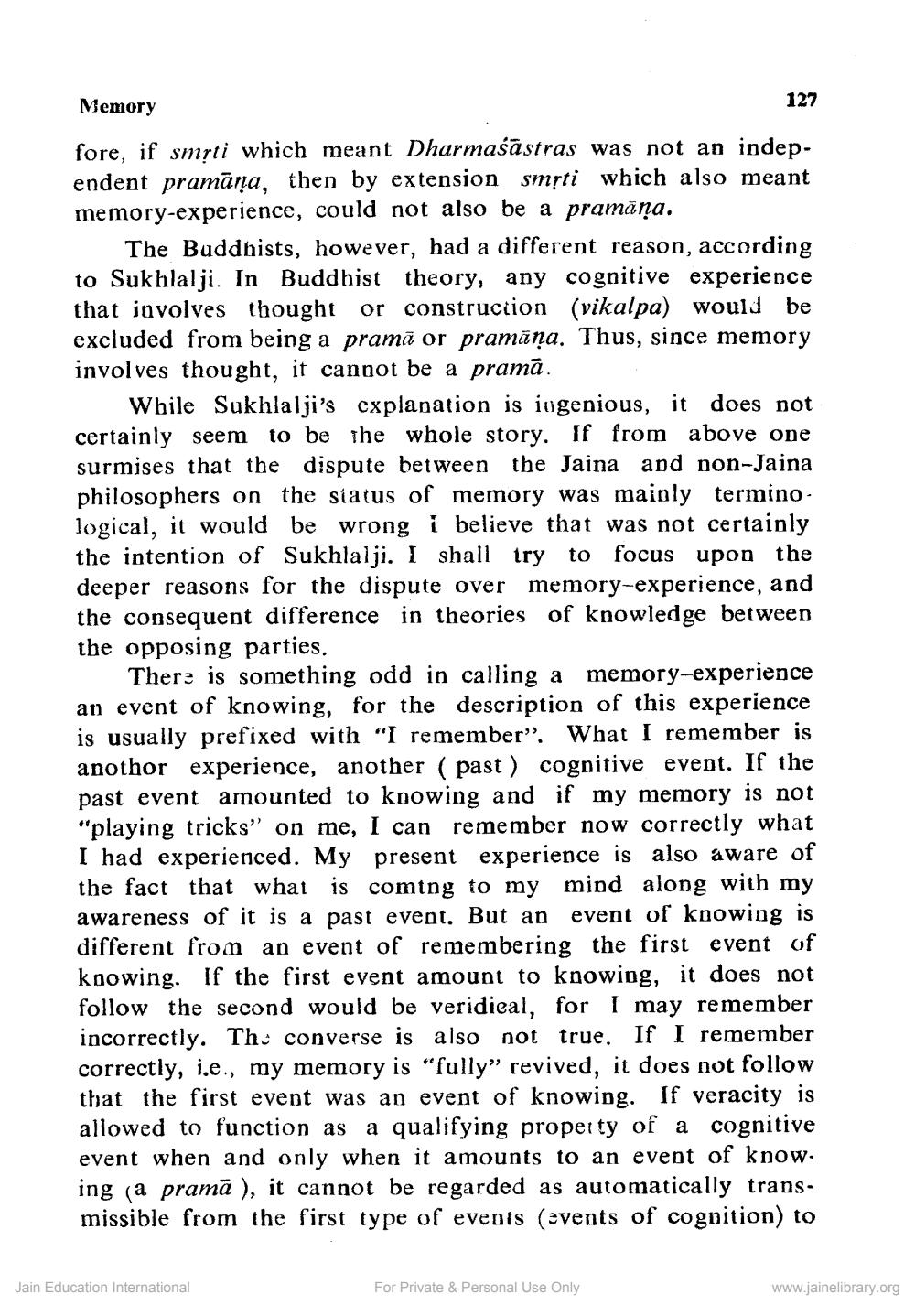________________
Memory
127
fore, if smrti which meant Dharmaśāstras was not an independent pramāna, then by extension smộti which also meant memory-experience, could not also be a pramāņa.
The Buddhists, however, had a different reason, according to Sukhlalji. In Buddhist theory, any cognitive experience that involves thought or construction (vikalpa) would be excluded from being a pramā or pramāņa. Thus, since memory involves thought, it cannot be a pramā.
While Sukhlalji's explanation is ingenious, it does not certainly seem to be the whole story. If from above one surmises that the dispute between the Jaina and non-Jaina philosophers on the status of memory was mainly terminological, it would be wrong i believe that was not certainly the intention of Sukhlalji. I shall try to focus upon the deeper reasons for the dispute over memory-experience, and the consequent difference in theories of knowledge between the opposing parties.
There is something odd in calling a memory-experience an event of knowing, for the description of this experience is usually prefixed with "I remember”. What I remember is anothor experience, another (past) cognitive event. If the past event amounted to knowing and if my memory is not "playing tricks” on me, I can remember now correctly what I had experienced. My present experience is also aware of the fact that what is coming to my mind along with my awareness of it is a past event. But an event of knowing is different from an event of remembering the first event of koowing. If the first event amount to knowing, it does not follow the second would be veridieal, for I may remember incorrectly. Th: converse is also not true. If I remember correctly, i.e., my memory is "fully” revived, it does not follow that the first event was an event of knowing. If veracity is allowed to function as a qualifying property of a cognitive event when and only when it amounts to an event of knowing (a pramā ), it cannot be regarded as automatically transmissible from the first type of events (events of cognition) to
Jain Education International
For Private & Personal Use Only
www.jainelibrary.org




